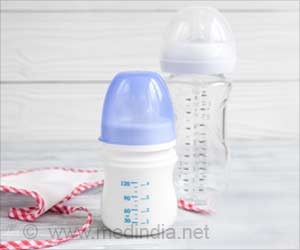The UK government also restricted online advertising of food and drinks high in fat, salt, and sugar to encourage children to adopt healthy dietary habits.
But in the absence of any legally binding regulations and guidelines for the composition and promotion of manufactured baby foods in the UK and the European Union, it’s something of a free-for-all amid surging sales.
The UK market for manufactured baby foods is set to soar to £1 billion (1.19 billion: US$1.35 billion) by 2024, growing by 2.5% year on year, they point out.
Researchers, therefore, wanted to explore the use and nature of promotional claims on manufactured baby food products intended for infants up to the age of 12 months in the UK and know the association between product characteristics and the claims made.
They searched the offering online or in-store for manufactured baby foods from 7 major UK supermarkets-Aldi, Asda, Lidl, Tesco, Sainsbury’s, Waitrose, and Morrisons plus Amazon- in June and September 2020.
They collected information on a brand name, type of packaging, net weight content (g), target age, product name, food type (wet, dry), product type (eg, snack, puree), promotional claim type, and claim message.
The promotional claims were categorized as health, nutrient, composition, and marketing. The marketing claims were further divided into those for baby-led weaning, convenience, meeting dietary goals, endorsements, ideals on feeding, lifestyle, quality, texture, taste, and others.
A total of 724 products from 34 brands were recorded, of which over half (56%) were sweet (404), 42% savory (303), and 2% sweet-savory and neutral (17).
Two thirds (68%, 493) of the products were classified as wet-spoonable, compared with around a third (32%, 231) which were classified as dry.
A total of 6265 promotional claims were identified on the 724 products. Nearly all products carried marketing (99%) claims on the packaging, followed by composition (97%) claims and nutrient claims (85%); just 6% of products (41) carried direct health claims.
The average number of total claims on each product was 9, with marketing claims totaling 5, on average. But there were up to 17 promotional claims on a single product.
Marketing claims referred mainly to the texture (84%) and taste (70%). The main composition claim was organic (63%, 457) while nutrient claims were mainly around ‘no added’ or ‘less’ sugar (58%, 422) and salt (57%, 417).
Baby-led weaning claims were found on 72% of snacks, with a significantly higher number of these claims on snacks (99%) than on other types of products.
While health claims were found only on 16% (38) of baby foods classified as dry and 0.6% (3) of wet-spoonable products, dry products, which included snacks and breakfast cereals, carried the most (94%, 51) of all the health claims made (54).
Endorsements such as ‘nutritionist approved’ or ‘dietitian approved’ were widely used, but the meaning of these endorsements in terms of nutrient quality or veracity of health claims is not fully clear and needs further scrutiny.
This study provides just a snapshot of a commercial baby food market, while the promotional claims were identified from online images from retailers’ websites which may not be up to date.
The unrestricted use of messages and ‘health halo’ statements on the packaging of [commercial baby foods] calls for policymakers and stakeholders to update guidelines, legislation, and policies to protect this vulnerable demographic so that infant feeding recommendations are not undermined.
Source: Medindia



